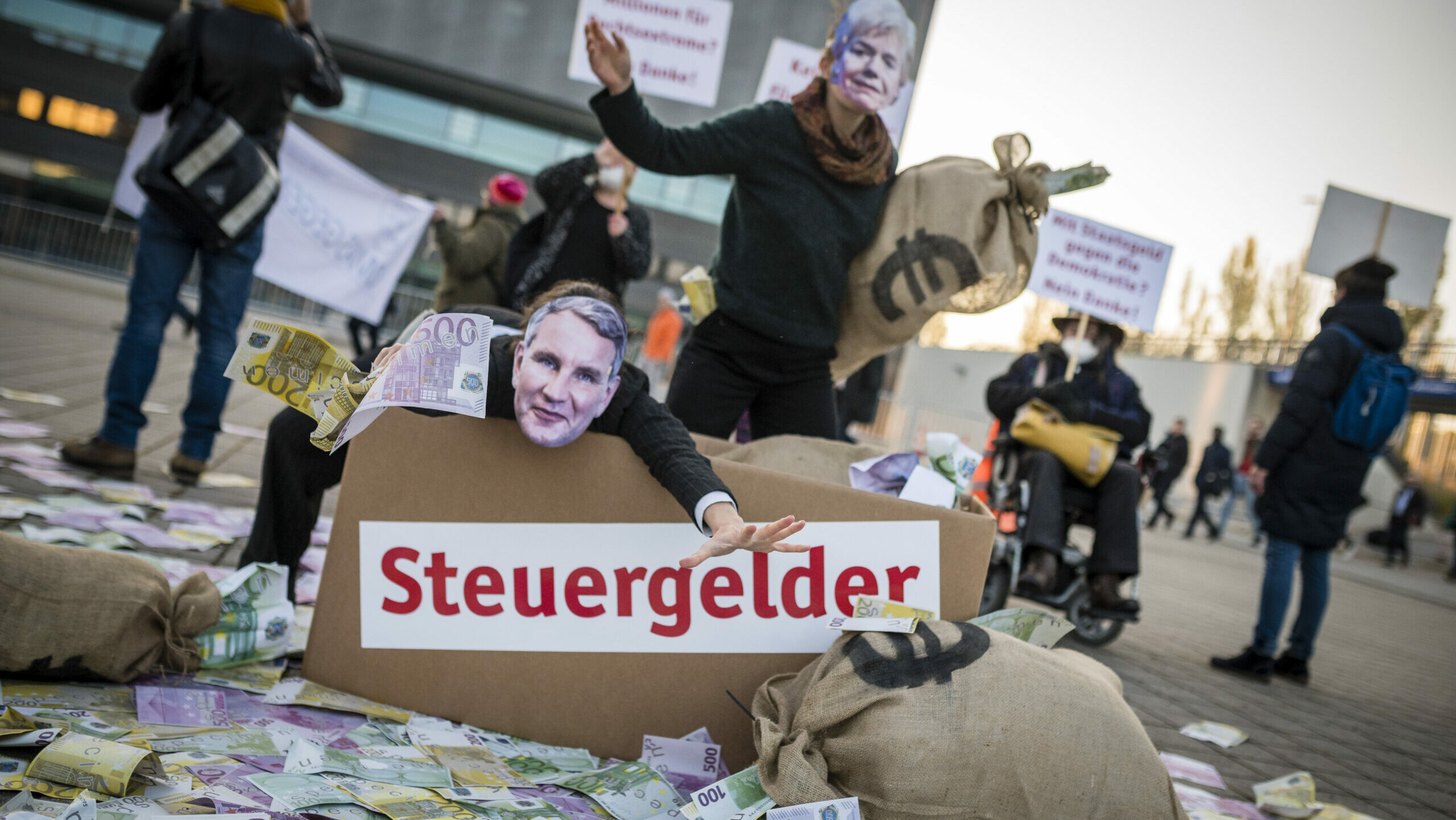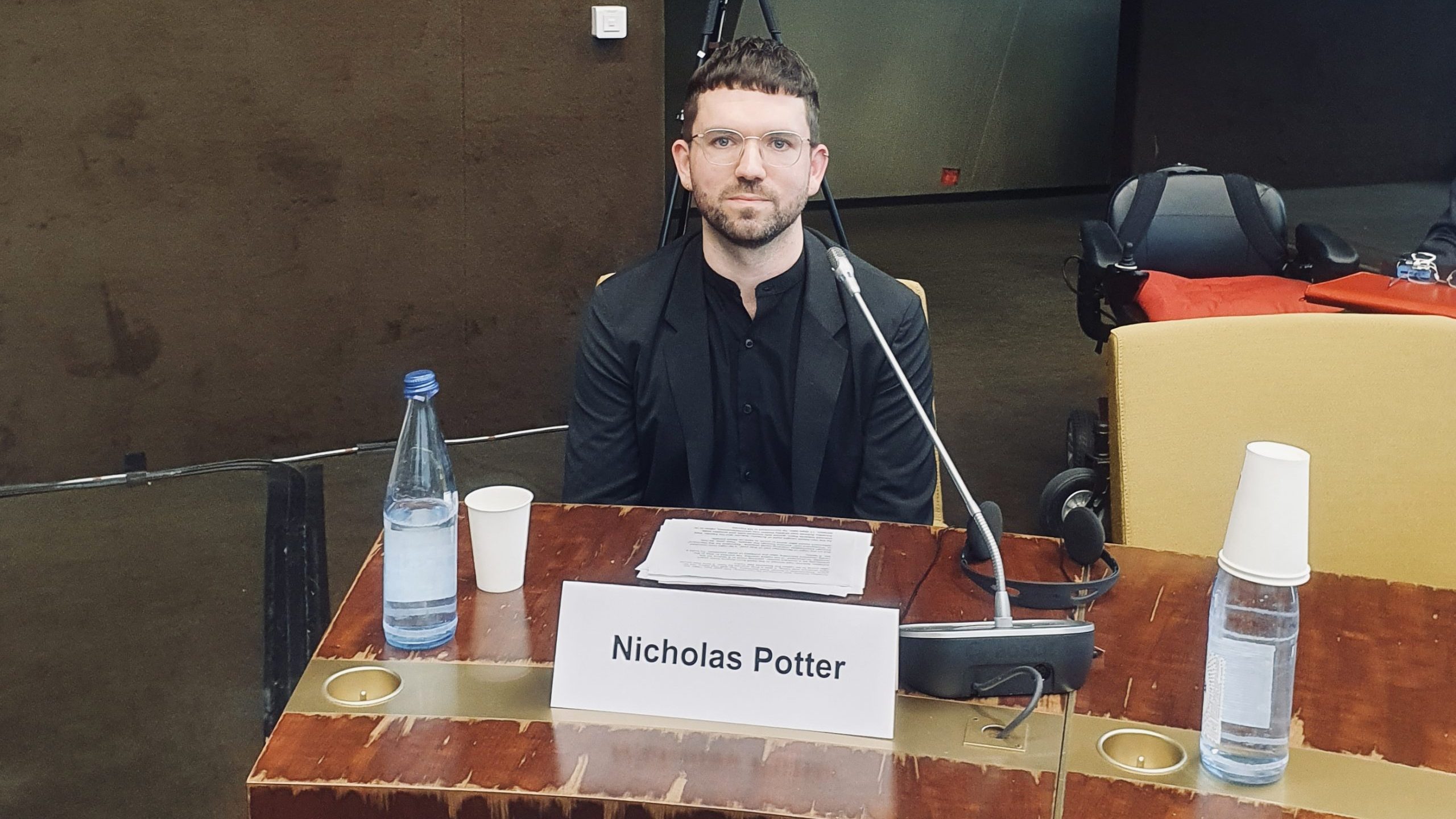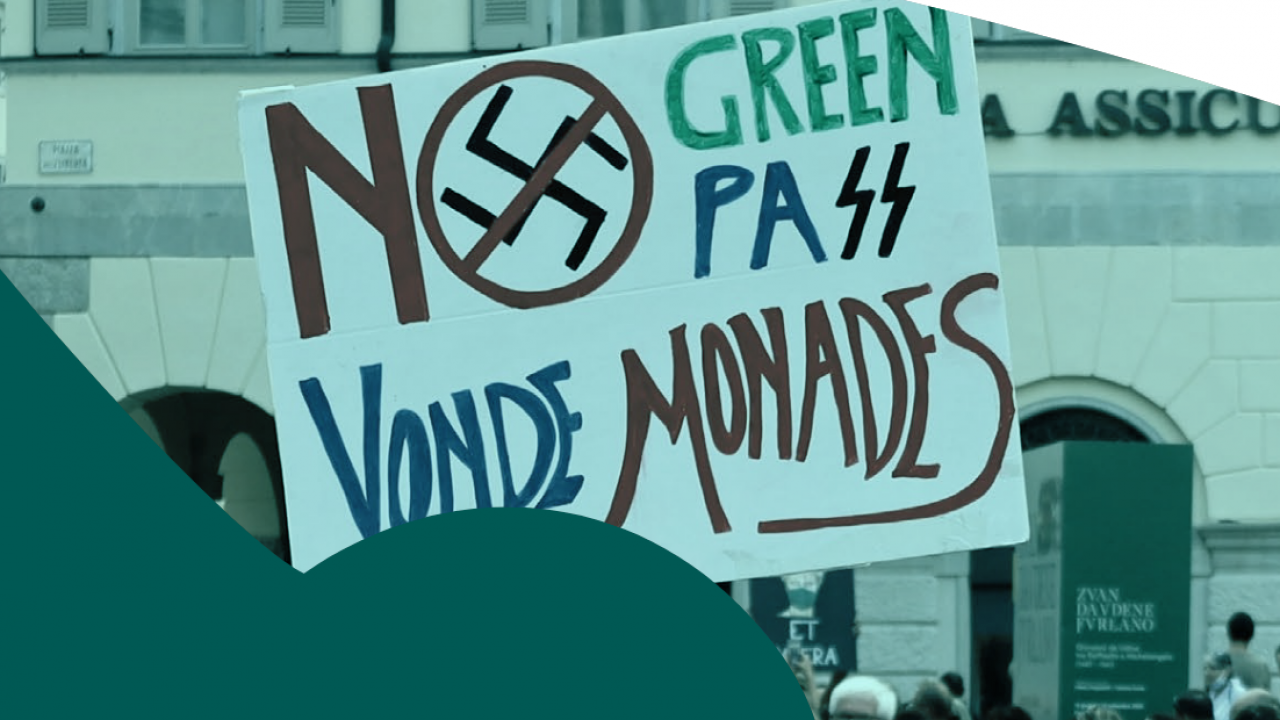Despite being classified as “confirmed right-wing extremist,” the AfD continues to receive massive amounts of state funding for the party and its members.
Every year, the federal government pays over 120 million euros to a party that questions the rule of law and human rights, and attacks democracy—solely for its electoral successes at the federal level. This constitutes a massive financial boost for right-wing extremist territorial gains and the funding of its affiliated structures.
The classification by the Federal Office for the Protection of the Constitution (Verfassungsschutz) makes it official: the entire AfD is a “confirmed right-wing extremist endeavor.” What victims of right-wing violence have long experienced firsthand is now also recognized by Germany’s domestic intelligence agency. Never before has a confirmed right-wing extremist party in the Federal Republic been able to win over so many voters as in the 2025 federal election: 20.4 percent of the vote. One in five, therefore, voted for a party that uses racist, anti-feminist, and antisemitic narratives to fuel hatred and fear, seeks to undermine parliamentary processes, and openly shares fascist visions of overthrowing the system.
While the long-overdue motion for a party ban is still being delayed, the new AfD parliamentary group is already enjoying abundant state funds. That’s because Germany is a party-based democracy. Political parties enjoy a special status here because they are essential to the functioning of the state. To ensure equal opportunity and prevent corruption, parties and their elected representatives receive substantial sums of money. The principle is: unless a party’s anti-constitutional aims are fully proven, it continues to receive state funding.
Public Party Financing
Parties in the Bundestag receive multiple financial privileges and public funds. State party financing consists of two types of annual subsidies:
-
Per Vote Subsidy: Parties receive 83 cents for each valid vote in federal, European, and state elections. To promote political competition for new parties, the first four million votes are subsidized at 1 euro each.
In the 2025 federal election, the AfD received 10,328,780 votes. This entitles the federal party to €9,252,887.40. Additional votes in state and EU elections bring in even more.
-
Matching Donations: Parties receive 45 cents for each euro received in donations, membership fees, or contributions from elected members—excluding large donations over €3,300. Inheritance and gift taxes do not apply to parties.
According to the most recent party financial report, in 2023 the AfD received:
-
€4,128,357.71 in membership fees
-
€9,305,517.63 in small donations (under €3,300)
This results in a state contribution of €6,045,243.90 in 2023. Considering the party’s membership growth (52,000 members as of Feb 2025, up from 39,673 in Dec 2023) and likely increase in donations, this contribution is expected to be even higher now.
-
Exact figures are hard to determine due to legal caps. State subsidies cannot exceed a party’s own income and total national subsidies must stay under €200 million.
Salaries for Members of Parliament
Bundestag members earn €11,227.20 monthly. For 152 AfD MPs, that totals €20,478,412.80 annually. A proposed increase of €606/month would raise this to €21,583,756.80.
Expense Allowances
In addition, each MP receives a tax-free monthly allowance of €5,349.58, meant to cover district office expenses, travel, and housing in Berlin. This totals €9,757,633.92 annually for all AfD MPs.
Office Equipment
MPs receive €12,000 per year for equipment and devices. For 152 AfD MPs, this amounts to €1,824,000 annually.
Staff Budget
Each MP gets €25,874/month for staff. The annual staff budget for all AfD MPs is €47,194,176.
Payments to Parliamentary Groups
Parliamentary groups also receive funds: €512,553/month plus €10,700 per member. Opposition parties (like the AfD) receive an additional 15% on the base amount and 10% on the per-member supplement.
For the AfD, this totals €28,541,711.40 annually.
Additional Perks
MPs enjoy other costly perks like a first-class BahnCard100 (worth €7,999 annually for non-MPs), among othe
More Than €120 Million in Taxpayer Money for Right-Wing Extremists
In total, the German government is estimated to provide at least €123,094,065.40 in 2025 to fund a party that undermines democracy from within. Additional millions flow at the state level.
This money goes—directly or indirectly—to violent neo-Nazi networks, New Right think tanks, far-right conspiracy campaigns, antisemitic and antifeminist initiatives, and transnational extremist networks.
The actual figure is likely higher, as the total does not include:
-
Compensation for parliamentary positions (e.g., committee chairs)
-
Additional travel perks like BahnCard100
-
Health/retirement insurance
-
Higher public matching from increasing membership and donations
Funding for AfD-Linked Foundation
The AfD-aligned Desiderius Erasmus Foundation (DES) is now eligible for state subsidies, having entered the Bundestag in three consecutive terms since 2016. Foundation head Erika Steinbach plans to claim €16–17 million per year.
Their programming ranges from lectures like “Does the Christian West still have a chance?” to seminars critiquing NGOs and civil society as tools of “leftist democracy simulations.”
To qualify for funding, foundations must actively support democratic values and international understanding. If a foundation is determined to be shaped by anti-constitutional ideology or employs individuals with anti-constitutional goals, it loses its funding rights—a decision made solely by the Ministry of the Interior, currently led by Alexander Dobrindt.
If approved, DES could massively expand its educational offerings, including scholarships for youth. This could lead to a rise in right-wing youth culture and the spread of conspiracy ideologies in the pre-political space.
Exclusion from Funding
After two failed attempts to ban the far-right NPD (now called Die Heimat), the Bundestag introduced funding exclusion as a tool of “militant democracy.” This allows cutting off state funding from anti-constitutional parties, even if they can’t be formally banned.
In January 2024, the NPD was successfully excluded from public funding under this new rule. Unlike the party ban, the potential to implement anti-constitutional goals is not required—just the clear anti-democratic orientation.
This same tool could, in theory, be used against the AfD.



